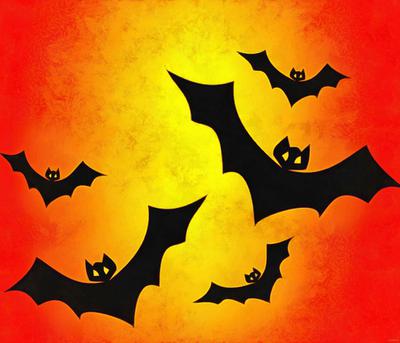
Can we see a blessing? Because if we cannot identify a blessing, then we most certainly cannot count it.
I want to address what kind of blessings we should be counting to get the benefit behind the idiom, count your blessings.
Count
Not like Count Dracula, but like the Count on Sesame Street. Counting. Like 1-2-3. Like the manual tally counters pictured above. I know. I know. Those are old school. Maybe you have a Fitbit that automatically counts steps. Too bad we don’t have that kind of technology to add up all our blessings every day!
Your
What is yours, personally. What you currently have in your possession.
Blessings
Noun. The object of what you count. It’s plural, too, assuming you have more than one.
Blessings are what the one giving the blessing gives to the one receiving the blessing. Yes. Blessings are a gift. A free gift. They can be material. They can be monetary. They can be spoken like compliments, congratulations, or well wishing. They can be health related. Blessings can be most anything.
The Source of all blessing is God. We can only truly bless others after we ourselves have been filled up with His blessing. A person cannot give what he does not have.
Since it is by blessing we receive gifts, then our response should be one of thanks. Thanks to the giver (if human) and also to God, the ultimate source of all blessing.
But all things that we have in our possession are not truly ours. They are His. We are only temporary stewards of all that we have.
And the purpose of being blessed is to bless others. And we use the resources God has given us to help make this world a better place.
Let’s see how this works. Was the world created because you deserved it? The stars? The moon? The sun? Were any of us deserving of the waters of the earth? The creatures of the sea? The dry land? All the creatures of the world? The air we breathe? For life itself? No. We didn’t deserve any of it. Creation was God’s first act of grace. His free, unearned acts of lovingkindness had nothing to do with our deservedness. It had everything to do with his character. He is a good God. He is a loving God. He is a giving God. He is the God of blessing.
Which of us deserved to have eyes or ears or mouth? Or arms or legs? Or a heart? Or blood? Or lungs? Or kidneys? Or 37 trillion cells? Over three billion strands of DNA in most of the cells? Or the breath of life itself? Or the next breath we take? Which of us deserves another day? All of these are free gifts to us. Things to treasure and care for. Blessings for which to be thankful.
Which of us deserves family? Friends? Community? A government to keep us safe? Stores and businesses? Shops and services? Technology? Science? Arts? Skills? Knowledge? Cars? Shoes? Clothes? Houses? Passions? Hobbies? Pleasure? Relationships? Children? Care? Love? Kindness? All gifts to us. All things to be thankful for.
And the awesome daily natural world we see and live in? The beauty in a sunrise? Or sunset? The colors of a bird’s feathers? The delicateness of a butterfly? The sweet smell of a flower? A clear blue sky? Soft, billowy clouds? Rain that waters the earth? Did we deserve any of this? I think not.
We are marvelously made. We live on a fantastic planet. Our blessings are vast and far reaching. We are bathed in blessings every day. Blessings are acts of God’s gracious, lovingkindness that can be seen and heard and smelled and tasted and touched. It is splendid beyond human language.
A few years ago I prayed a prayer I now say every day. It has literally changed my outlook on life. Here it is:
Lord, show me Your grace
Bathe me in Your mercy
Fill me with Your lovingkindness
Give me Your patience
Let me see what You see
Let me hear what You hear
Show me the things
That You value most
Let me be Your feet
Let me be Your hands
Let me feel what You feel
Let me speak Your words
Let me be the answer
To someone’s prayer today
Even if you don’t remember all this just ask God to let you see what He sees and do what He wants in the same nature and character that He has—love.
Now I look for people every day. I look for the brokenhearted, those weighed down in anxiety, the despairing, the hopeless, the hurting, the fearful, the sick, the weak, the lonely, the outcast, the misfit, the unloveable, the handicapped, the disadvantaged, the grieving, the afflicted, the lost, and the blind. To the least significant person on earth: I love you. And so does God.
This is how my blessing clicker works. It counts so much that I end up counting all day long. It makes me more thankful. It makes me more peaceful. It makes me feel content. It calms my thoughts. I am more relaxed.
I can now see differently with the eyes of my heart. My outlook on life has changed. I always tried to be positive. But when my mind ran out of reasons to be positive I would lapse back into negativity. I was trying to think positively on my own effort. It was only temporary. I was stuck in the negatives. Now I have zillions of reasons to be thankful.
Yes, but don’t you have bad days? Don’t you have dark times? Don’t you have hardships? Yes. Yes to all of those questions. But what do I do in those situations? Two things: 1) increase my thanks to God and 2) look for more opportunities to bless others. I double down.
The whole reason I am alive another day is to be a servant of God’s blessing to others. Revealing God’s grace in acts of lovingkindness to others is my sole mission in this earthly life.
So count your blessings! Give thanks. Enjoy. Then share. It’s God’s way.








